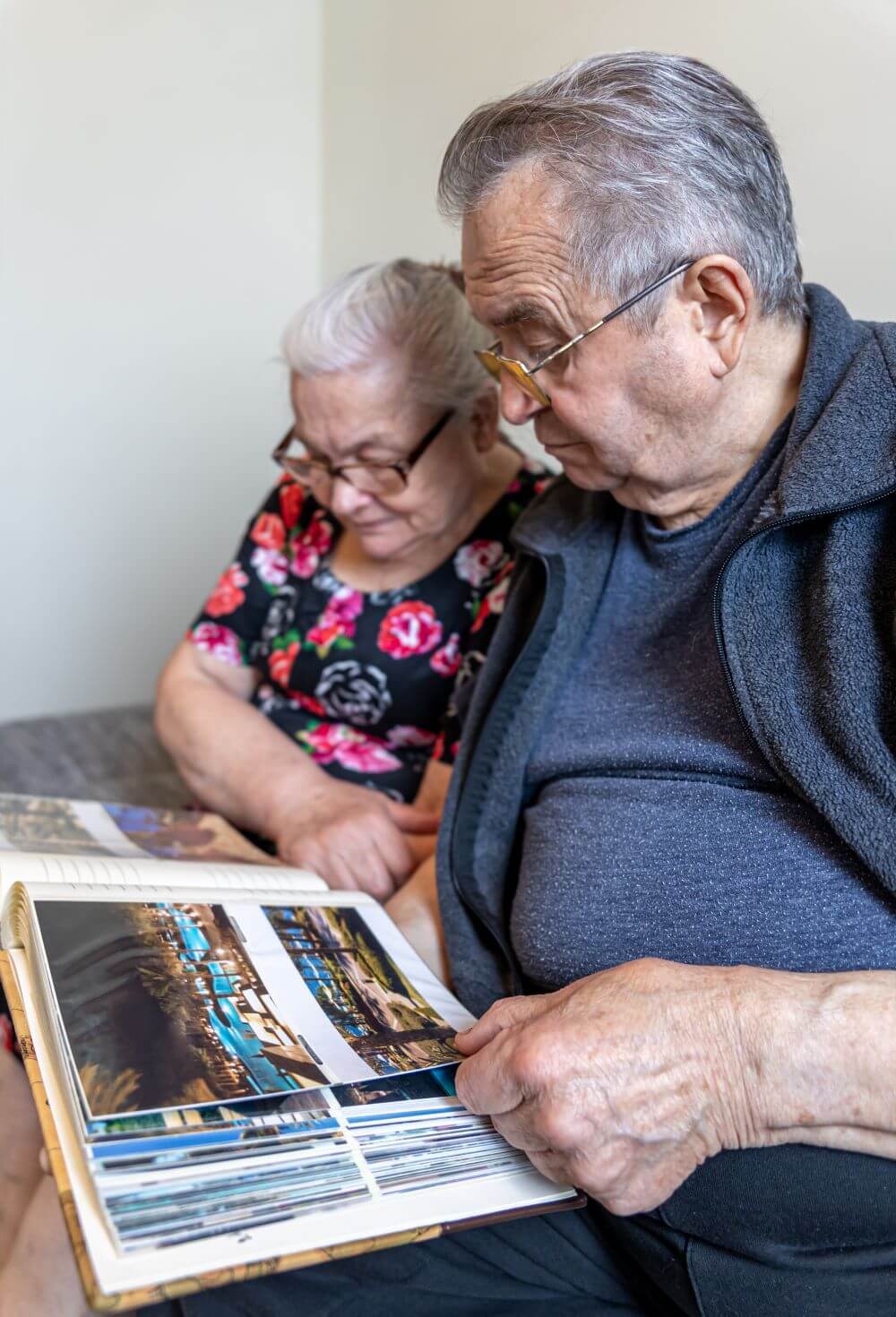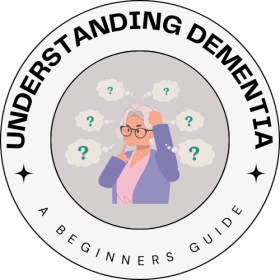Helping Your Loved One Understand Dementia with Compassion
The question hits you like a punch to the chest: “What’s happening to me?” Your loved one looks at you, their eyes filled with confusion and fear. Suddenly, the reality of dementia feels impossibly heavy. How do you respond? What do you say to comfort them when you can barely make sense of it all yourself?
It’s one of the hardest moments caregivers face. Whether it happens early in the journey or later, the weight of that question can leave you speechless. But here’s the thing: you don’t have to have all the answers. What matters most is how you make them feel in that moment—loved, understood, and not alone.
Let’s walk through how you can navigate this tender conversation with compassion, love, and honesty.

Why This Question Is So Important
When your loved one asks, “What’s happening to me?” they’re not just looking for an explanation—they’re reaching out for reassurance. They can feel the changes happening, even if they can’t fully name or understand them. It’s a moment of vulnerability, and how you respond can shape their sense of safety and trust.

What to Say Without Using Fearful Labels
The words you choose matter, especially when terms like “dementia” or “Alzheimer’s” carry so much stigma. These labels, while accurate, can evoke fear, anger, or even denial in someone who is already struggling to process changes in their mind.
Instead of using medical terms right away, try framing the conversation with gentler, less intimidating language.
What to Say: Practical Examples
- Reassuring and Simple:
“I know things feel confusing right now. You’re having some memory and thinking issues, but the doctors and I are here to help you.” - Focusing on Support:
“Your brain is working a little differently these days, and that’s okay. We’ll figure this out together.” - Redirecting With Comfort:
“You might be feeling a little off, but I’m here to help you every step of the way. Let’s focus on what makes you happy today.”
What Not to Say
While it’s important to focus on reassurance, there are some responses that may unintentionally increase confusion or fear:
-
- Avoid Overwhelming Details: Explaining the specifics of dementia or using terms like “Alzheimer’s” can be too much for them to process.
- Avoid Dismissive Responses: Saying things like, “Don’t worry about it” or “You’re fine” can make them feel unheard.

A Real-Life Story of Comfort and Connection
Let me share a story about a caregiver I once worked with. Her name was Anna, and she cared for her husband, Tom, who was in the early stages of cognitive decline.
One evening, Tom sat on the edge of the bed, tears streaming down his face. “I don’t know what’s wrong with me,” he said. Anna felt her heart break. She knelt beside him, held his hand, and said, “Tom, I know it’s frustrating. It seems like your memory is giving you a hard time right now. The doctors are going to help us figure it out, and we’ll handle it together.”
Those words didn’t fix everything, but they eased Tom’s immediate fear. Over time, Anna introduced more information slowly, always focusing on reassurance and love.

When to Introduce Terms Like Dementia or Alzheimer’s
There may come a time when it’s necessary to use specific terms like “dementia” or “Alzheimer’s,” especially if your loved one needs to understand medical treatments or care decisions. However, these conversations don’t have to happen all at once.
When you feel it’s time to bring these terms into the conversation, make sure they’re paired with reassurance:
- “The doctors think this might be something called dementia, which means it’s affecting how your brain works. But no matter what, I’m here, and we’ll face this together.”
- “Dementia is a word for what’s causing the memory and thinking troubles. It doesn’t change who you are or how much you’re loved.”

Responding to Emotional Reactions
When your loved one hears even a gentle explanation about their cognitive issues, it’s natural for them to respond with strong emotions like sadness, anger, fear, or even denial. These reactions are not just normal—they’re part of processing something that feels deeply personal and, often, frightening. Your role in these moments is to offer empathy, understanding, and reassurance.
Here’s how you can navigate different emotional responses with compassion:
If They’re Angry
Anger often comes from frustration, fear, or a sense of loss. Your loved one might lash out because they feel like they’re losing control over their life. Try to remain calm and validate their feelings without escalating the situation.
For example, if they say, “Why is this happening to me? I’m not stupid!” you might respond:
- “I can see this is frustrating for you. I’m here to help in any way I can.”
- “It’s okay to feel upset—this is a lot to deal with. We’ll figure this out together.”
Avoid arguing or trying to reason with them in the heat of the moment. Instead, focus on staying grounded and being a calming presence. Sometimes, simply sitting quietly with them can help diffuse the tension.
If They’re Sad
Sadness often arises when someone begins to grasp the weight of their condition. They may cry, withdraw, or express feelings of hopelessness. In these moments, the best response isn’t always verbal—it’s emotional connection.
For instance, if they say, “I feel like I’m losing myself,” you can offer:
- A gentle hug, holding their hand, or placing a comforting arm around their shoulder.
- Words of encouragement, such as: “I know this is hard, but you’re not alone. I’m right here with you, and we’ll take this one step at a time.”
Let them feel their emotions without rushing to “fix” things. Sometimes, just listening and being present is the most meaningful support you can provide.
If They’re Fearful
Fear often stems from uncertainty—questions like, “What’s going to happen to me?” or “What if I forget you?” can weigh heavily on their mind. Your role is to provide reassurance without making promises you can’t keep.
If they voice concerns like, “I’m scared of what’s coming,” you might respond:
- “I understand why you feel that way. It’s okay to be scared, but I’ll be here every step of the way.”
- “We’ll take this one day at a time. You’re not facing this alone.”
You can also redirect their focus to practical steps that offer stability, such as planning enjoyable daily activities or emphasizing the things that remain unchanged in your relationship.
If They’re in Denial
Denial can be a coping mechanism, and while it may feel frustrating, it’s important to meet them where they are emotionally. Avoid forcing them to accept their condition in that moment; instead, provide gentle support and focus on their strengths.
For example, if they insist, “There’s nothing wrong with me!” you can respond:
- “You’re doing your best, and that’s what matters. Let’s work together to make things easier.”
- “I know you’re feeling fine today, and that’s a good thing. Let’s take it one step at a time.”
This approach allows them to feel heard without pressuring them into a reality they’re not ready to face.
Practical Tips for Handling Emotional Reactions
- Stay Calm and Centered: Your tone and body language can either escalate or de-escalate the situation. Speak softly and maintain open, non-threatening posture.
- Acknowledge Their Feelings: Validating what they’re experiencing helps them feel understood, even if their emotions seem irrational.
- Use Simple, Reassuring Words: Avoid complex explanations or lengthy responses. Sometimes, a short, heartfelt phrase like “I’m here for you” is enough.
- Give Them Space if Needed: If they seem overwhelmed, a brief pause or a quiet moment can help them process their emotions before re-engaging.
- Redirect Their Focus: After acknowledging their feelings, gently shift their attention to something comforting or familiar, like a favorite activity or memory.
Remember, these emotional moments can be tough, but they’re also opportunities to deepen your connection and show your loved one that they’re not alone in this journey. Through patience, empathy, and gentle reassurance, you can help them navigate their feelings while strengthening the bond between you.

Finding Comfort in Small Moments
Sometimes, the best comfort comes from redirecting attention to something familiar and soothing:
- Look through old family photos.
- Listen to their favorite music.
- Take a walk in the garden or sit quietly together.
These moments remind your loved one that while some things may change, many sources of joy and connection remain.
Educating Yourself and Your Family
Understanding dementia is a journey, and the more informed you are, the better you can support your loved one. Encourage family members to learn about the condition and its progression.
- Read: Check out our blog, How to Navigate the Different Stages of Dementia, for practical tips on what to expect at each stage and how to prepare.
- Learn: Consider enrolling in our Understanding Dementia Course, which provides in-depth insights and strategies to care for your loved one with confidence.
When family members educate themselves, it helps create a more supportive and understanding environment for your loved one.

Taking Care of Yourself as a Caregiver
These conversations can be emotionally exhausting and may leave you feeling drained, worried, or even overwhelmed. It’s important to acknowledge your emotions and make space for self-care, so you can maintain the strength and patience needed to care for your loved one effectively.
After a difficult discussion or emotional moment, consider what self-care practice resonates most with you. Here are a few examples to guide you:
-
Talk to Someone You Trust: Share your feelings with a friend, family member, or therapist. Verbalizing your emotions can lighten the load and offer a new perspective on your experience. For example, you might say, “I just had a tough moment with Mom, and it brought up so much sadness. Can I talk it through with you?”
-
Write in a Journal: Putting pen to paper can help you process your thoughts and emotions. Consider writing down what happened, how it made you feel, and what you learned from the interaction. For instance, you could jot down: “When Dad asked me why his memory feels so jumbled, it broke my heart. But I’m proud that I stayed calm and gave him reassurance.”
-
Take a Mindful Pause: Sometimes, all you need is a few deep breaths to reset. Find a quiet space, close your eyes, and focus on your breathing. A simple practice like inhaling for four counts, holding for four, and exhaling for four can calm your mind and body.
-
Engage in Something You Enjoy: Dedicate time to an activity that brings you joy, whether it’s gardening, reading, painting, or taking a walk in nature. Reconnecting with your passions can help recharge your energy and remind you of your individuality beyond caregiving.
-
Seek Professional Support: Joining a caregiver support group or speaking with a counselor who understands the challenges of caregiving can provide validation and practical advice. For example, you might share your experience and discover strategies others have used to handle similar situations.
-
Set Boundaries: It’s okay to step away when you need to. If you’re feeling particularly depleted, ask another family member or trusted friend to step in for a bit. Self-care is not selfish—it’s essential for sustaining your role as a caregiver.
Remember, self-care doesn’t need to be elaborate or time-consuming. Even small moments, like sipping a cup of tea in peace or taking a 10-minute walk, can make a big difference. When you prioritize your well-being, you’re not only helping yourself but also ensuring you can continue to show up for your loved one with patience, compassion, and resilience.
Final Thoughts
When your loved one asks, “What’s happening to me?” it’s a chance to offer them reassurance and connection. By avoiding terms that may feel overwhelming and focusing on love, support, and hope, you can help them feel less alone in their journey.
Dementia doesn’t change the bond you share. And when words feel hard to find, your presence will always speak volumes.









